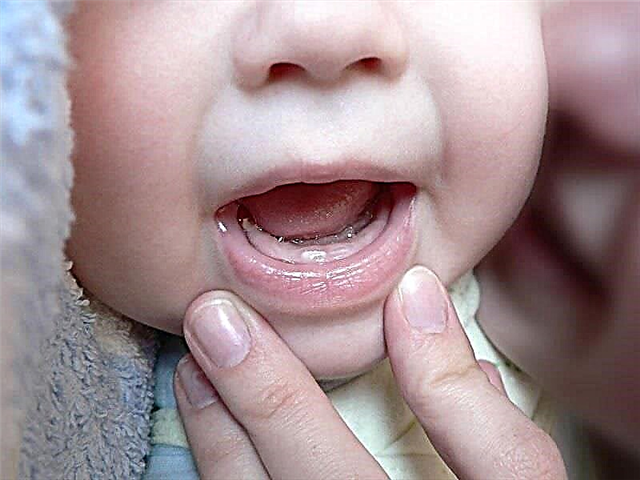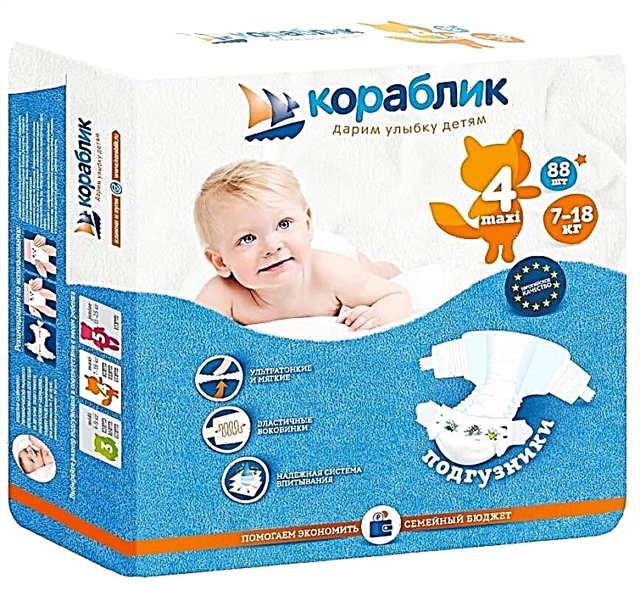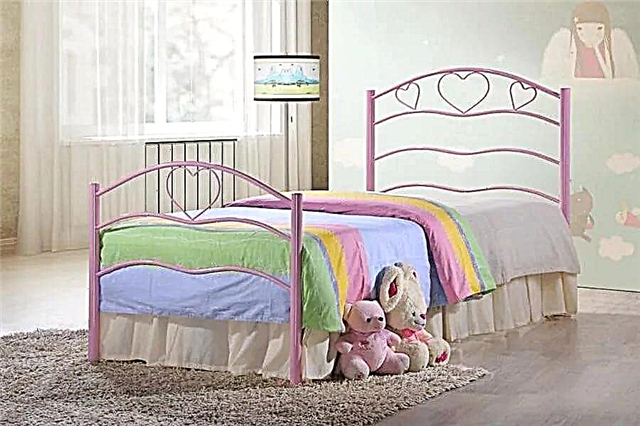Children's diseases in the first weeks after birth are very diverse. However, the most common ailment young parents may experience is allergies. How the disease is determined, the main symptoms of allergies, what can be given to a newborn child from allergies, are discussed in this article.

Allergy in newborns
Allergy causes and symptoms
The manifestation of an allergic reaction in a young child can look completely different. In one case, it will be redness and rash, in another - cracks and small dots, in the third - peeling and itching.
In this case, the behavior of the baby is completely different. Some children become capricious, restless, others sleep, eat and play as if nothing had happened.
Most often, rashes appear on the arms, back, tummy and cheeks of the baby. They gradually spread throughout the body.
The disease can be accompanied by coughing, sneezing, fever and asthma.
For children under one year old, the appearance of an allergic reaction can be caused by:
- Food is one of the most frequent occurrences. In this case, the reaction can be caused by both complementary foods and breast milk;
- Medicines or constituent components;
- External irritants, More often occurs on cosmetics (oils, shampoos, creams). Even anti-allergic shampoo or foam can cause breakouts;
- Respiratory - occurs with constant inhalation of an irritant (pet hair, dust).
Important! If any of the symptoms occurs, it is forbidden to independently treat an infant and a baby up to a year. The child should be shown to a doctor to diagnose the disease and prescribe medications.
Parents should understand that allergy remedies for infants are not always suitable for different forms of the disease. In addition, you need to consider the dosage depending on the age.
It's worth remembering! The child's body has individual characteristics. Therefore, there is no need to listen to the advice of other mothers, grandmothers or other unqualified persons. When symptoms appear, the baby is first shown to the pediatrician.
Having received medical recommendations, parents can independently adjust them, based on the existing analogues and cost.

Visit doctor
Effective Newborn Allergy Medicines
Antihistamines for newborns are used to treat allergies. For infants, drops are usually prescribed. Older children (from 3 years old) can be given medicines in tablets.
Since the children's body is not yet fully formed, parents need to strictly follow the medical prescriptions and instructions for the drug. Each medication has its own dosage and administration options.
How to choose the right drug against allergies
The main point that you should pay attention to when buying a medicine is the active substance. If the baby has an intolerance to chemicals, it is better to resort to natural ingredients.
Hormonal antihistamines for babies can only be used with the prior permission of the attending physician. If you need antihistamines, you should give preference to the fourth generation, without the effect of sleeping pills.
As for the price, more expensive does not mean better, but it is also not worth buying too cheap. In the latter case, the drug will have low bioavailability.
Four generations of antihistamines
Any antihistamine drug for newborns has a specific group. More precisely, it belongs to one of four generations. Therefore, the opinion that all means have the same effect is erroneous.
Moreover, different generations are designed for certain age categories. Some of them are contraindicated for use by infants. Others are allowed to be used from the first days of life.
First generation antihistamines
The first generation is intended for the treatment of allergic diseases in both children and adults. They are fast acting. It is equally important that the drugs almost do not stay in the body, they are immediately excreted. These drugs are easy to change and only used as needed.
The main disadvantage of the first generation is its short-term effect (maximum time - up to 6 hours). Therefore, they are only used to relieve symptoms. Also, such drugs are characterized by an addictive effect. May cause drowsiness.
Examples of medicines:
- Fenistil - allergy drops for newborns;
- Suprastin - appointed from 12 months;
- Fenkarol - used from 3 years old;
- Tavegil - for children over 6 years old;
- Clemastine - also from 6 years old.

Fenistil
Second generation antihistamines
The main advantage of the second group is that they are not addictive, so they can be taken for a long time. They act quickly enough and create a long-lasting effect.
Note. Among the disadvantages are the presence of side effects such as nausea, vomiting and dry mucous membranes.
Examples of second generation drugs:
- Zyrtek - for babies from 6 months, it is prescribed in the form of drops. From 5 years of age, already in tablets;
- Claritin - used from 2 years old;
- Zodak - from allergies for newborn babies from 0 months.
Third generation antihistamines
They have the most powerful effect. Most often used to treat allergic diseases in children. Used for long-term treatment. They are able to stay in the body for a long time.
The disadvantages include the high cost of drugs in this category. You may be allergic to the drugs themselves.
Options:
- Terfenadine is a powder-type drug. It is prescribed for children from the age of three;
- Astemizole - discharged from the age of 2.
Fourth generation antihistamines
Only three medicines belong to the fourth generation:
- Ksizal, another name is Levocetirizine. It is prescribed for babies under 6 years old. Copes successfully with urticaria, conjunctivitis, inflammation and itching;
- Lordestin, in another way - Desloratadine. Sold as tablets or syrup. Good for treating chronic urticaria;
- Telfast, or Fexofenadine. The drug is sold in tablets. Children are discharged from the age of 6. Not intended for an earlier age.
The main advantage of these funds is that they are able to cope with almost any manifestation of allergies. The disadvantages include the fact that such drugs are not intended for babies.

Ksizal
Forms of drugs for children
Antihistamines for babies and older children come in many different forms. In order to choose them correctly for your baby, you should disassemble each in more detail:
- Tablets are one of the fastest-acting drug options. However, they are not intended for babies who are not yet able to swallow them on their own. In addition, the tablets have a negative effect on the kidneys and liver;
- Drops are the most gentle option for medicines, ideal for treating babies. Usually, a dose of 1-2 drops is prescribed to infants;
- Syrups are also suitable for children. They have a pleasant taste and smell (mostly fruity). However, they contain sugar, dyes that can provoke allergies;
- Injections. Getting a patient vaccinated is the fastest way of treatment, since the drug enters the bloodstream immediately. The downside is that this requires the help of a specialist;
- Ointments, creams, sprays have one main drawback - they act pointwise and relieve not of the disease itself, but only of its symptom. Also, to achieve the effect, as a rule, a long course of treatment is required.
Important! If, after using the drug, the baby becomes sleepy, lethargic, this is a normal reaction of the child's body, if the dosage has been followed. The main dosage of each medication is indicated in the instructions for use.

Forms of medicines
Contraindications, side effects, overdose
The main contraindication for all drugs, not only antiallergenic drugs, is the individual intolerance of the constituent substances. Typically, these medications have the following side effects:
- From the first generation drugs, drowsiness, lethargy, and fatigue most often occur;
- Dryness of the mucous membrane;
- Nausea, vomiting;
- Loss of appetite;
- Difficulty urinating;
- Allergic reaction (rash) to the constituent substances.
Addiction can be another undesirable effect of use. Therefore, before giving a medication to an infant, you should carefully read the composition and clearly follow the instructions.
Do not exceed the indicated dosage or give the drug to the baby at the wrong time. Usually, medicines are taken after meals.
The article examined what can be given to a baby for allergies. The list of drugs presented is incomplete, since there are a lot of drug options. However, young parents should remember the basic rule - no medication should be given before the doctor has examined the baby. The specialist will tell you which drug is most suitable in a particular case.



